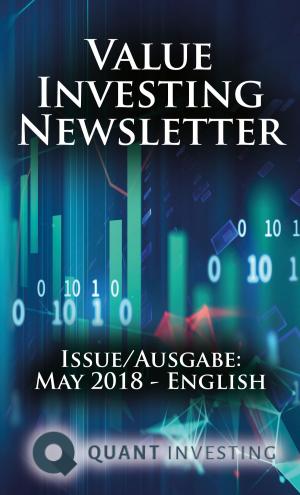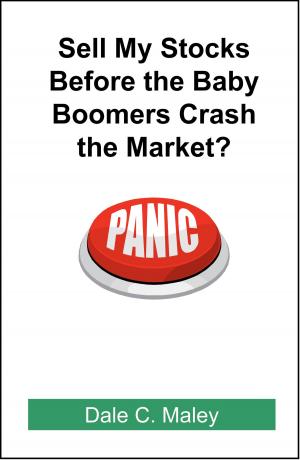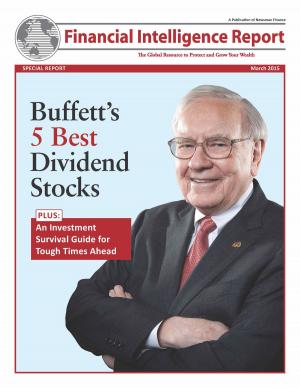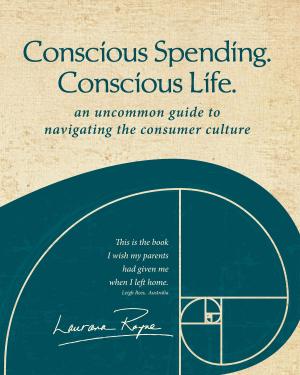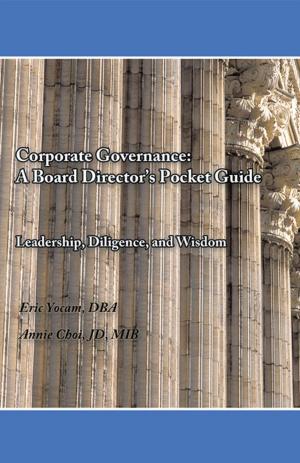Reinventing Capitalism
How we broke Money and how we fix it, from inside and out
Business & Finance, Economics, Sustainable Development, Personal Finance| Author: | Freeman Jon | ISBN: | 9780956010780 |
| Publisher: | Spiralworld | Publication: | October 1, 2015 |
| Imprint: | Spiralworld | Language: | English |
| Author: | Freeman Jon |
| ISBN: | 9780956010780 |
| Publisher: | Spiralworld |
| Publication: | October 1, 2015 |
| Imprint: | Spiralworld |
| Language: | English |
Our financial systems are broken - not fit for purpose. The evolution of capitalism has stalled and no longer meets our human needs or the conditions that we face. When we examine how our relationship with money has evolved, we can see how the values and mindsets we held have become embedded in systems that are now poorly adapted to today's world. This book describes what is required now of the system and we who use it, in order to enable its redesign and rebuild. Our economic values, relationships and systems operate at several levels. They drive individual views and actions. They show up in our societal choices and political priorities. Our businesses and corporations function according to our perceptions of how ownership, engagement, commitment, benefit and purpose should be framed and governed.
At the highest level we function in a global economy that reflects national interests, multinational corporate power, planetary ecology, global politics and macro-economic management principles. While it is obvious that these levels affect each other they are rarely viewed and addressed whole and entire. This is not a technical book and these themes are presented in everyday terms that we can all understand. Even so, the picture that emerges is comprehensive and while it is complex by nature, this step up to an overview level allows us to see the simplicity which emerges.
Nor is this an exercise in theory. Its only function is to help us solve today's problems - to see how we find our way to stability, sustainability, fairness and functionality. Money was invented as a tool to serve us, to make our interactions easier. While the capitalist system has enabled more advances and material benefits than could have been imagined, it has not made humanity happier. Capitalism has been replaced by debtism. Money now drives our choices and decisions and has become our master rather than our servant. We have to balance Purpose, People, Planet, Profit, and Pleasure. We need to think in new ways and be supported by new systems. This will take a bigger conversation than has yet happened and the book sets out fresh ways of thinking and 36 practical goals affecting all of the levels discussed. Its purpose is to support and generate a more joined-up conversation than we have ever had.
All of the jigsaw's many pieces exist already; now we need a table to put them on and a framework for joining them together. This book begins that construction and is intended as an invitation to the widest possible engagement in charting the steps that we all need to take. In a time of challenge to our social evolution, we have an opportunity to decide what kind of economic species we need to become. In a time of unremitting rain and rising seas it is offered as the outline design for an ark. Together we can make it into a blueprint. Together, we can build it.
Our financial systems are broken - not fit for purpose. The evolution of capitalism has stalled and no longer meets our human needs or the conditions that we face. When we examine how our relationship with money has evolved, we can see how the values and mindsets we held have become embedded in systems that are now poorly adapted to today's world. This book describes what is required now of the system and we who use it, in order to enable its redesign and rebuild. Our economic values, relationships and systems operate at several levels. They drive individual views and actions. They show up in our societal choices and political priorities. Our businesses and corporations function according to our perceptions of how ownership, engagement, commitment, benefit and purpose should be framed and governed.
At the highest level we function in a global economy that reflects national interests, multinational corporate power, planetary ecology, global politics and macro-economic management principles. While it is obvious that these levels affect each other they are rarely viewed and addressed whole and entire. This is not a technical book and these themes are presented in everyday terms that we can all understand. Even so, the picture that emerges is comprehensive and while it is complex by nature, this step up to an overview level allows us to see the simplicity which emerges.
Nor is this an exercise in theory. Its only function is to help us solve today's problems - to see how we find our way to stability, sustainability, fairness and functionality. Money was invented as a tool to serve us, to make our interactions easier. While the capitalist system has enabled more advances and material benefits than could have been imagined, it has not made humanity happier. Capitalism has been replaced by debtism. Money now drives our choices and decisions and has become our master rather than our servant. We have to balance Purpose, People, Planet, Profit, and Pleasure. We need to think in new ways and be supported by new systems. This will take a bigger conversation than has yet happened and the book sets out fresh ways of thinking and 36 practical goals affecting all of the levels discussed. Its purpose is to support and generate a more joined-up conversation than we have ever had.
All of the jigsaw's many pieces exist already; now we need a table to put them on and a framework for joining them together. This book begins that construction and is intended as an invitation to the widest possible engagement in charting the steps that we all need to take. In a time of challenge to our social evolution, we have an opportunity to decide what kind of economic species we need to become. In a time of unremitting rain and rising seas it is offered as the outline design for an ark. Together we can make it into a blueprint. Together, we can build it.







